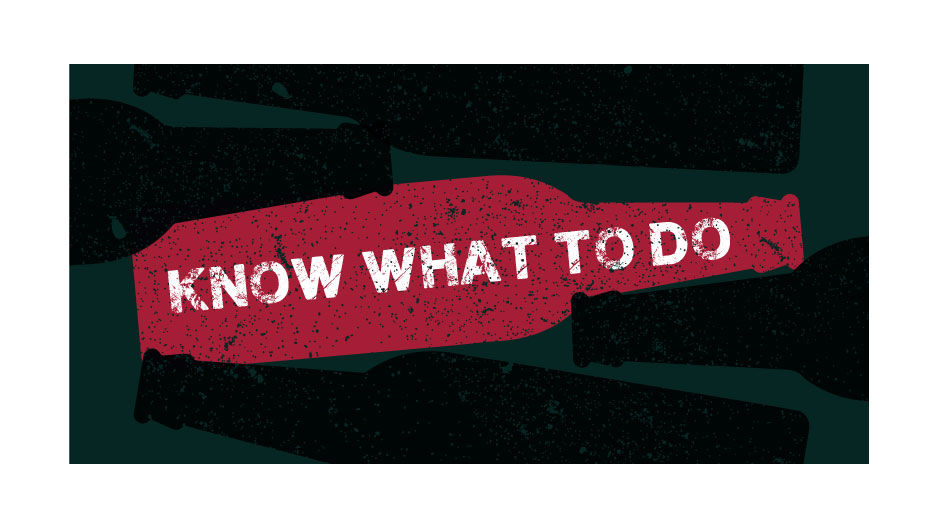Drinking 101: What to do when your friend’s had too much
Listen up, peeps. It was just Homecoming, midterms are wrapping up and Halloween is right around the corner—basically, it’s peak party season. Speaking of drinking … there’s some serious stuff happening on college campuses lately. Like students losing their lives (seriously, their lives) because they drank too much, and their peers didn’t know what to do. That’s a situation we never want you to be in. To help prevent that from happening, we talked to a doc to find out what the signs of danger are and exactly what you should do to take action. So, plz, know what to do.

The situation isn’t uncommon in college: You’re out at a party or bar, the alcohol is flowing and one of your friends has had too much to drink.
When it comes to binge drinking in particular—four or more drinks within a few hours for women and five or more for men—things can get dangerous fast.
So what should you do if a friend seems like they’re in trouble? The most important thing, experts say, is knowing the warning signs of potential alcohol poisoning, and making sure to call for help when they’re present.
Joseph D’Orazio, an emergency physician and toxicologist at Temple University Hospital, said there are three important signs to look for to tell a person could be in danger: slurred speech, inability to stand without falling or walk without stumbling, and loss of consciousness.
“If those are there, get them to the hospital,” D’Orazio said.
The biggest concern when someone has alcohol poisoning is that the person is too intoxicated to unblock his or her airway if it becomes blocked—like if they pass out facedown on a pillow or vomit while unconscious.
“The way you die from alcohol poisoning is usually you get so drunk that your mental status is compromised and you obstruct your airway and suffocate,” D’Orazio said. “Alcohol doesn’t slow your breathing down, but it makes you so sleepy that if your mouth was covered, you wouldn’t wake up to take a breath.”
To protect students who call for help for friends in danger, Temple has a longstanding medical amnesty policy that waives disciplinary action for any related alcohol or other code of conduct violations. With the support of Mary Ciammetti’s educational campaign "Don't Stall, Just Call" Temple continues to educate students on alcohol-related dangers and urge them to call for help. Ciammetti’s son, Christian, was a junior at Temple in 2015 when he died of alcohol poisoning.
“We offer medical amnesty in order to reassure a student that the most important decision they can make is to call for medical attention for an intoxicated friend,” Dean of Students Stephanie Ives said. “We have found that students do not abuse the amnesty policy, and it can clearly save lives.”
While you’re waiting for help for an intoxicated friend, D’Orazio says there are some important things you should—and shouldn’t—do to keep them safe.
“Make sure that they’re breathing, that their head and neck are in a position that they’re able to breathe,” he said. “That’s the most important thing.”
What not to do: try to feed the person, give them coffee or splash water on their face.
D’Orazio also cautioned that if someone who’s been drinking falls and hits their head, it’s time to call for help. “People who are intoxicated and have head injuries have a higher risk of bleeding in their brain,” D’Orazio said, adding that the signs of a head injury can be similar to the signs of intoxication, so it’s difficult even for doctors to assess someone who’s drunk.
If there’s any question of whether someone needs help, call Temple Police at 215-204-1234.
“You can’t argue with the notion of you’re better safe than sorry,” D’Orazio said. “No one would rather be sorry than safe.”